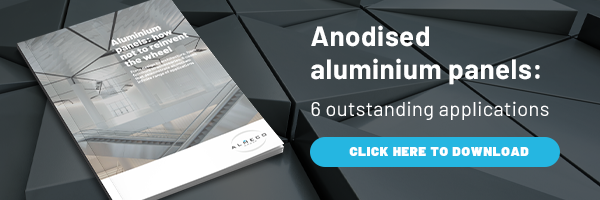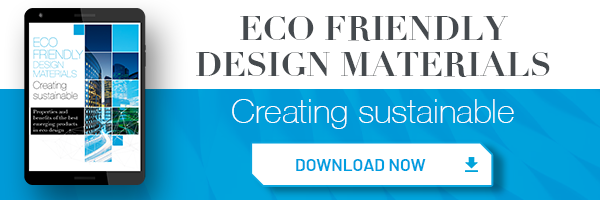In recent years, sustainability has gone from being a nice-to-have concept to a requirement for many companies. Growing interest from consumers and pressure from regulators require many industries to abide by strict standards. This is because moving to a circular economy requires rethinking not only products – and their entire life cycle – but also production processes.
A challenge that requires optimising the use of resources and the management of waste. Lightweight and strong, durable, and infinitely recyclable, energy-saving aluminium is the sustainable material of choice. Aluminium is 100% recyclable and can be recycled again and again without degrading its inherent value. In fact, according to The Aluminium Association – an American NGO – nearly 75% of all aluminium ever produced is still in use today.
Moreover, the aluminium industry is working constantly to reduce its carbon impact.
Almeco: experience, innovation, and sustainability
The Almeco Group is a virtuous example of how innovation can lead to sustainable products and processes, and the almost total reuse of materials and production waste. The company has extensive experience in aluminium production, which has led it, over the years, to strive for production methods with less environmental impact.
Most Almeco products, in fact, are made of anodised aluminium, which is more resistant than coated aluminium and has a lower environmental impact. In addition, Almeco has developed, thanks to a network of partners, an innovative process for the management, reuse, and disposal of production waste.
The company has two types of waste: from the metal production process, which is 100% recycled, and organic and inorganic waste, which is 78% recycled.
A circular economy approach to production
To reduce the energy used during production processes and to dispose of waste correctly, the company implemented in 2018 a water management system. This system rationalises the flows used in production to reduce the environmental impact and dispose of pollutants correctly.
Stream management is fundamental to guarantee product quality and for the correct disposal of production’s waste. The water used in the processes passes through a purification plant, where part of the flow is immediately purified and can be fed back into the production cycle. The dirtiest water is separated from the pollutants through a distillation process.
The pollutants that can be separated form a sludge that constitutes raw material for the production of some of Almeco’s partners. Only a very small percentage of the water cannot be purified.
A certified zero-waste system
But Almeco takes care of this small percentage as well, thanks to selected partners. In fact, the company has joined the “ESG Value” initiative of its partner Omnisyst, which deals with the governance and disposal of industrial waste.
The CO2 resulting from the transport of waste (and waste itself) is offset through the purchase of CO2 credits according to the Verified Carbon Standard (VCS). The credits are used, in the case of Almeco, for a hydroelectric plant project in India, thus benefiting both the environment and the community.
The products in the bandoxalpro® range are manufactured through this process, but the company’s focus on sustainability affects all processes and products. All this allows the Italian factory to be ISO 14001: 2015 certified, while the German plant, which is dedicated to PVD vacuum processes, is also 18001 certified since it was opened.
Sustainability, a key value for Almeco
The company was able to take this commitment even further. Thanks to its innovative plants and the collaboration of its R&D centres, Almeco has developed HRC73A™.
This product combines an alloy of 90% recycled content and the innovative Almeco “zero waste” anodising treatment. In this way, water consumption is reduced by 90% compared to traditional processes.
The company, which has always been a forerunner in this subject, installed an energy monitoring system years ago. This has allowed Almeco to optimise energy consumption and reduce the environmental impact of products and processes.
Finally, the San Giuliano Milanese plant is equipped with a photovoltaic system and an energy cogeneration plant which produces electricity from gas. These and other investments have allowed Almeco to significantly cut its carbon footprint. A result of the company’s continuous search for innovation, care for the environment, and a carefully selected chain of suppliers.


